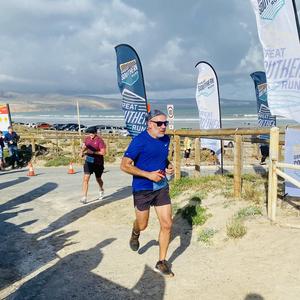
If you are among the 620 million people who lace up their running shoes regularly, chances are you’re an early riser. However, if you haven’t clocked at least eight hours of quality sleep the night before, your risk of injury may significantly increase. This is the conclusion of a new study led by Professor Jan de Jonge, a work and sports psychologist at Eindhoven University of Technology in the Netherlands, and an Adjunct Professor at the University of South Australia.
In a survey of 425 recreational runners, Prof. de Jonge and his team discovered that those reporting shorter sleep durations, lower sleep quality, and more sleep problems were nearly twice as likely to sustain an injury. The findings, published in the journal Applied Sciences, provide “compelling evidence that sleep is a critical yet often overlooked component of injury prevention,” according to Prof. de Jonge.
Sleep: The Overlooked Component in Injury Prevention
While many runners focus on mileage, nutrition, and recovery strategies, sleep often falls to the bottom of the list. Prof. de Jonge’s research reveals that poor sleepers were 1.78 times more likely to report injuries than those with stable, good-quality sleep, with a 68% likelihood of sustaining an injury over a 12-month period. “That’s a strong reminder that how well you rest is just as important as how hard you train,” he emphasizes.
Recreational running is one of the world’s most popular sports, yet it carries a high injury risk, with up to 90% of runners experiencing an injury at some stage. This not only affects personal health but also imposes a financial burden, costing the global economy millions of dollars annually in work absences and medical expenses.
Understanding the Role of Sleep in Athletic Performance
The study is among the first to investigate sleep as a multidimensional factor in relation to sports injuries, considering not just duration but also quality and sleep disorders. “Sleep is a vital biological process that allows the body and mind to recover and adapt to the physical and mental demands of training,” Prof. de Jonge explains. “When sleep is disrupted or insufficient, the body’s ability to repair tissues, regulate hormones, and maintain focus diminishes, all of which can increase injury risk.”
Runners who regularly experienced sleep problems, such as difficulty falling asleep, waking frequently during the night, or not feeling rested upon waking, were particularly vulnerable to injury. In contrast, those with consistent sleep duration and good sleep quality reported fewer injuries.
Implications for Athletes and Coaches
Prof. de Jonge notes that the findings have significant implications for both recreational and competitive athletes, coaches, and health professionals. “We often assume that more training equals better performance, but that’s not necessarily the case,” he states. “Runners—especially those balancing training with work, family, and social commitments—may actually need more sleep than average adults to recover properly. Sleep should be treated as a performance priority, not an afterthought.”
Experts recommend aiming for between seven and nine hours of sleep per night, with athletes often needing additional rest, including daytime naps, to aid mental and physical recovery. Consistent bedtimes, minimizing screen use before bed, reducing caffeine and alcohol intake, and creating a quiet, cool sleep environment should all be prioritized.
Looking Forward: Sleep as a Predictor of Injury Vulnerability
Sleep quality and duration are both crucial, but quantity often provides the foundation. “Sleep should be recognized not only as a recovery tool but also as a potential predictor of injury vulnerability in recreational sports,” Prof. de Jonge concludes.
As the conversation around athletic performance continues to evolve, this study underscores the importance of integrating sleep into training regimens. With growing awareness, athletes and coaches alike may begin to prioritize sleep as a cornerstone of injury prevention and overall health.





